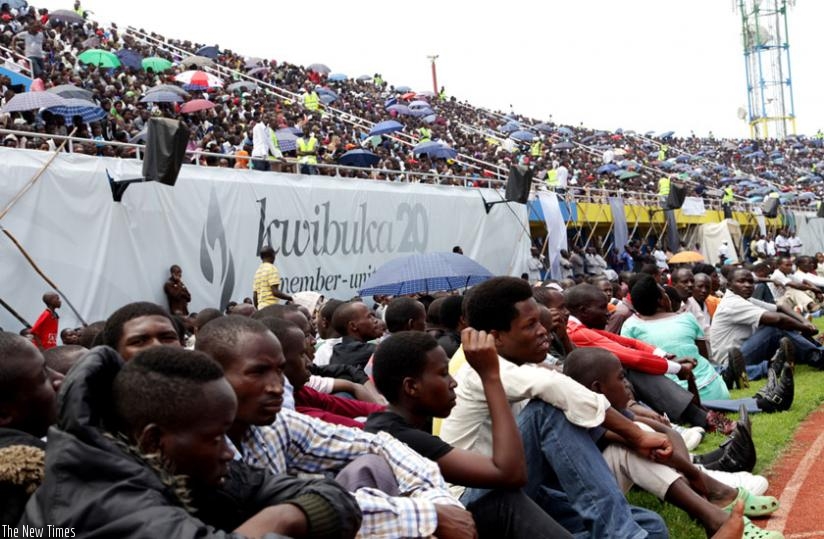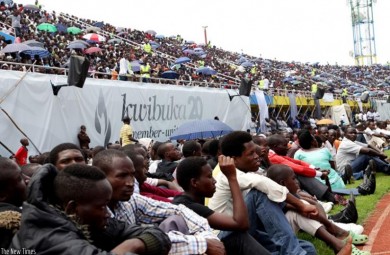
21 years later, Rwanda remembers.
By Edwin Musoni, The New Times.
Rwandans and friends of Rwanda all over the world will today commence the weeklong activities organised to mark the 21st anniversary of the 1994 Genocide against the Tutsi, with a special focus on fighting against genocide denial and ideology.
More than a million people died in the carefully planned massacre that lasted 100 days from April to July.
The commemoration is expected to start with a lighting of the ‘Flame of Hope’ at Kigali Genocide Memorial Centre, Gisozi by President Paul Kagame, which will burn for the 100 days.

According to the National Commission for the Fight against the Genocide (CNLG), the Head of State will also lay a wreath in honour of not only the 250,000 victims interred at the memorial, but also all victims of the Genocide. Later, a minute of silence will be observed countrywide.
“At the memorial centre, the guest of honour will be accompanied by three Genocide survivors’ representatives from each of the 30 districts along with 30 rescuers from the 30 districts,” said Dr Jean Damascene Bizimana, the executive secretary of CNLG.
During the commemoration week, several activities are planned, including visiting and laying wreaths at Genocide memorial sites, according decent burial to exhumed remains of Genocide victims, vigils at which testimonies are given by different people, and outreach activities to vulnerable survivors of the Genocide, among others.
No special theme
Although there is no specific memorial theme for this year, CNLG says commemoration events will be held under the Kwibuka pillars of Remember, Unite, Renew, with a special focus on combating genocide ideology and denial of the 1994 Genocide against the Tutsi.
Kwibuka is a Kinyarwanda word loosely translated to mean ‘remembering.’
Bizimana added that today, residents will converge at the village level to pay tribute to the one million Tutsis massacred in 1994.
“Although the genocide was committed against the Tutsi, it happened in all corners of the country, this is why we are taking it to the village level to ensure every Rwandan is involved and also to collectively support vulnerable Genocide survivors,” said Bizimana.
He added: “At the village level public talk-shows will be held, featuring lectures on how the Genocide ideology and denial can be tackled. We shall also have activities to recognise Rwandans who were brave enough to rescue people during the Genocide.”
Usually, apart from the official commemoration, Rwandans and friends of Rwanda conduct a walk to remember annually, but this year, Bizimana said, the walk has been replaced with neighbourly visit to the most vulnerable survivors to show them support and solidarity.
Beginning last year, it was agreed that the Genocide commemoration be marked at the village level and a national event held every after five years.
Dr Jean Pierre , the president of Ibuka, the umbrella of associations advocating for the interests of survivors of the Genocide, said this year’s commemoration should be a step toward resilience.
“We want to step out of the shadow of death to life, we want to focus on resilience and that is the one way Genocide survivors will live a better life. This is why the commemoration is being held at the village level,” Dusingizemungu said.
He added that as Rwandans commemorate, it’s time to name and shame anyone who denies or revises the 1994 genocide against the Tutsi.
“Some of these deniers are based down there in the villages, they are our neighbours we must name these people, it’s the only way to counter them,” Dusingizemungu said.
President Kagame recently told a news conference that the best way to tackle genocide ideology and denial is by looking at the bigger picture and attending to the real issues faced by those most affected by the 1994 Genocide against the Tutsi.
